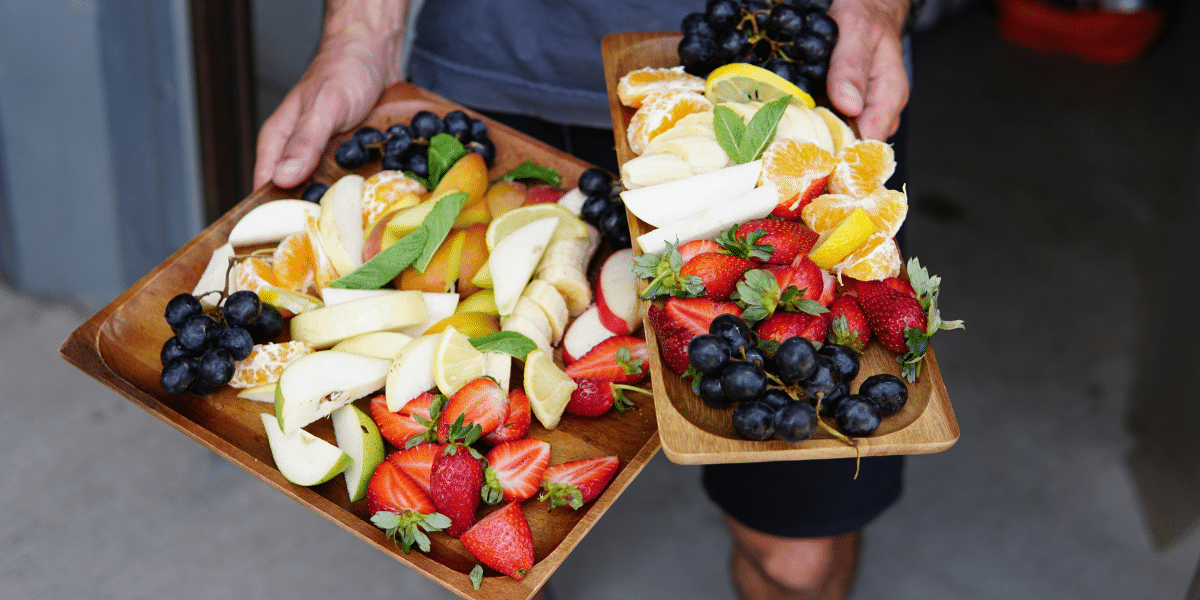Understanding the Essentials of a Gym-Centric Diet
In the pursuit of fitness goals, diet plays a pivotal role in achieving optimal results. For gym enthusiasts in Los Angeles and beyond, it’s crucial to adopt a well-rounded approach to nutrition that complements their workout routines.
A diet tailored for gym-goers should primarily focus on nutrient-dense foods. These include lean proteins, whole grains, fruits, and vegetables. These elements provide the necessary energy, vitamins, and minerals to support overall health and muscle development.
Protein Power: Building Blocks for Muscle
Protein plays a pivotal role in a gym-centric diet, serving as the fundamental building block for muscle repair and growth. As individuals engage in regular physical activity, the demand for protein increases to support the wear and tear on muscles during workouts. Including a variety of protein sources is crucial for ensuring an adequate intake.
Lean meats, such as poultry and fish, provide essential amino acids, while eggs offer a versatile and complete protein source. Dairy products contribute valuable calcium and protein, promoting bone health alongside muscle development. For those following a plant-based diet, incorporating sources like legumes, tofu, and quinoa ensures that they receive the necessary amino acids to support their fitness journey.
Regardless of dietary preferences, optimizing protein intake is a cornerstone for achieving effective and sustainable results in the gym.
Carbohydrates: Fueling Your Workouts
Carbohydrates act as the primary source of energy for the body. Complex carbohydrates from sources like whole grains, legumes, and vegetables provide sustained energy, crucial for enduring intense gym sessions. Especially crucial for those engaging in intense gym sessions, complex carbohydrates offer sustained energy to meet the demands of physical activity. Whole grains, such as brown rice and quinoa, provide a steady release of glucose, ensuring a prolonged and consistent energy supply throughout the workout. Legumes, rich in complex carbohydrates and fiber, contribute to sustained endurance during exercise. Vegetables, with their nutrient-packed profile, not only offer carbohydrates but also provide essential vitamins and minerals that support overall health. Understanding the significance of incorporating these carbohydrate sources into a gym-centric diet is essential for optimizing energy levels and achieving peak performance during workouts.
Healthy Fats: The Right Kind of Fuel
While maintaining a low-fat diet is essential, including healthy fats is equally important. Avocados, nuts, seeds, and olive oil offer the necessary fats that support overall well-being and assist in the absorption of fat-soluble vitamins. Despite the emphasis on maintaining a low-fat diet, understanding the distinction between healthy and unhealthy fats is imperative. Avocados, nuts, seeds, and olive oil stand out as sources of the right kind of fats – monounsaturated and polyunsaturated fats that contribute to overall well-being. These fats play a vital role in supporting various bodily functions, including hormone production and cell structure. Additionally, the incorporation of healthy fats aids in the absorption of fat-soluble vitamins, such as vitamins A, D, E, and K, ensuring that the body maximizes the benefits of these essential nutrients. Striking a balance by including these sources of healthy fats enhances the nutritional profile of a gym-focused diet, promoting not only physical fitness but also overall health.
Hydration: The Often Overlooked Element
Proper hydration is often underestimated in its impact on gym performance. Staying well-hydrated aids in regulating body temperature, supporting joint function, and ensuring optimal performance during workouts. Water should be the primary choice, but electrolyte-rich beverages can be beneficial after intense sessions. Adequate hydration contributes significantly to regulating body temperature, a key factor in preventing overheating during vigorous workouts. Additionally, proper hydration supports joint function, minimizing the risk of injuries and promoting overall joint health, a crucial consideration for sustained physical activity. Ensuring optimal performance during workouts hinges on maintaining a consistent and sufficient fluid intake.
While water stands as the primary choice for hydration, especially before and during exercise, the inclusion of electrolyte-rich beverages becomes particularly beneficial post intense sessions. These beverages aid in replenishing electrolytes lost through sweat, helping to restore the body’s balance and supporting a quicker recovery process.
By prioritizing hydration as a fundamental component of a gym-centric lifestyle, individuals can enhance their endurance, reduce the likelihood of fatigue, and ultimately optimize their overall performance.
Crafting Your Personalized Gym Diet
Individual dietary needs vary, and it’s essential to tailor a gym-centric diet to personal goals, preferences, and any existing health conditions. Consulting with a nutritionist or dietitian can provide personalized insights, ensuring that your dietary choices align with your fitness objectives.
Adopting a disciplined approach to nutrition, combined with regular exercise, forms the foundation for a healthy and active lifestyle. By embracing a well-rounded and personalized diet, individuals can enhance their gym experiences and work towards achieving their fitness aspirations.
Remember, consistency is key when it comes to both diet and exercise. Making informed and sustainable choices will contribute to long-term health and fitness success.








